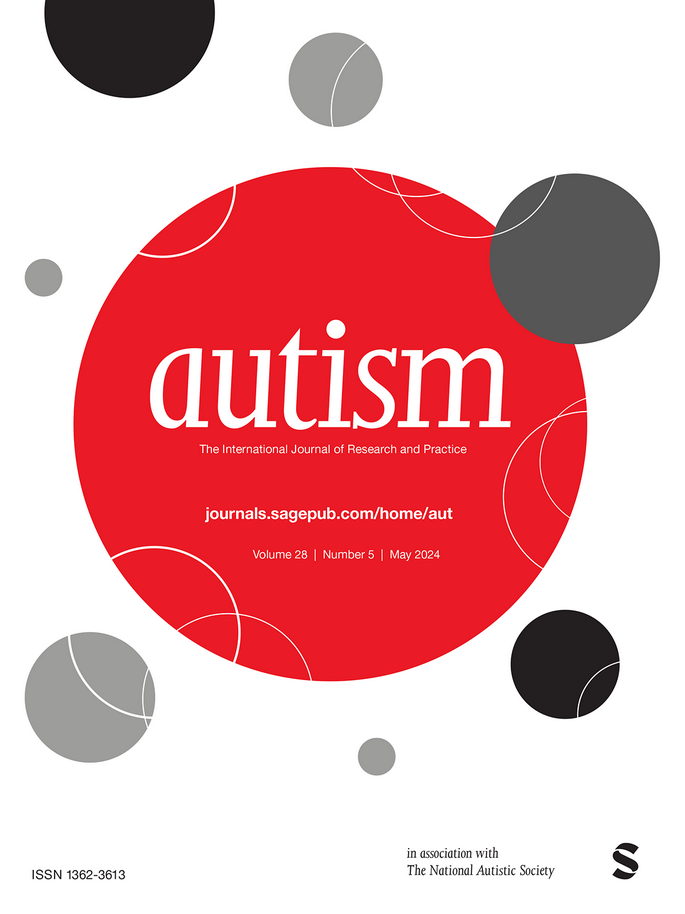孤独症成人身心健康状况的发生与重叠。
摘要
精神和身体健康状况是自闭症成年人关注的主要话题,但研究很少考虑它们的重叠。因此,本研究评估了荷兰成年自闭症患者的身体健康状况和心理健康状况,以及两者之间的潜在联系。通过问卷调查,我们比较了自闭症(n = 327)和非自闭症(n = 274)成年人(30-90岁)的心理健康状况、身体健康状况和与健康相关的生活质量。自闭症成年人报告的健康相关生活质量低于非自闭症成年人。Logistic回归表明,自闭症成年人报告的所有心理健康状况的比例都明显更高,最常见的是情绪(45%)、焦虑(22%)和人格障碍(21%),比值比从6到34不等。在身体健康状况方面,自闭症成年人报告的肠道疾病(27%)、过敏(48%)和甲状腺功能减退(6%)的发病率明显更高,比值比在2到4之间。对自闭症、最常见的精神健康状况和身体健康状况的心理测量网络分析强调,自闭症是一个中心节点,其次是情绪和人格障碍、肠道和呼吸系统疾病以及过敏。精神健康状况紧密聚集,表明高合并症。虽然没有一种特定的条件将身心健康联系起来,但我们发现了两者之间的一些联系。这些发现强调需要改善医疗保健和更广泛的社会变革,以提高自闭症患者的福祉。【摘要】自闭症成人经常面临一系列的身体和心理健康问题,但这两种健康问题之间的关系尚不清楚。我们的研究着眼于自闭症成年人的身体和精神健康状况发生的频率。我们还研究了这些条件之间的联系,使用一种称为心理测量网络分析的方法。我们调查了年龄在30-90岁之间的327名自闭症成年人和274名非自闭症成年人,了解他们面临的潜在健康状况以及他们对健康质量的看法,也就是与健康相关的生活质量。我们发现,自闭症成年人的健康相关生活质量较低,所有心理健康状况的发病率都较高。最常见的是情绪(45%)、焦虑(22%)和人格障碍(21%)。与非自闭症成年人相比,自闭症成年人有这些心理健康问题的可能性要高6到34倍。在身体健康方面,自闭症成年人报告的肠道疾病(27%)、过敏(48%)、甲状腺功能低下(6%)的发病率较高,中风(CVA/ tia; 3%)和风湿病(31%)的发病率较低,风险是非自闭症成年人的2至4倍。使用心理测量网络分析,我们发现自闭症成年人的心理健康状况密切相关,表明他们的健康挑战有多复杂。虽然没有单一的条件将身心健康联系起来,但我们发现了两者之间的一些联系。这些发现强调需要改善医疗保健和更广泛的社会变革,以提高自闭症患者的福祉。Mental and physical health conditions are a major topic of concern in autistic adults, but studies rarely consider their overlap. Therefore, this study assessed physical health conditions and mental health conditions in autistic adults in the Netherlands and potential associations between them. Using questionnaires, we compared autistic (n = 327) and non-autistic (n = 274) adults (30-90 years) on mental health conditions, physical health conditions, and health-related quality of life. Autistic adults reported lower health-related quality of life than non-autistic adults. Logistic regressions indicated significantly higher rates of all mental health conditions reported by autistic adults, most common being mood (45%), anxiety (22%), and personality disorders (21%), with odds ratios ranging from six to 34. Regarding physical health conditions, autistic adults reported significantly higher rates of bowel conditions (27%), allergies (48%), and hypothyroid conditions (6%), with odds ratios ranging from two to four. Psychometric network analysis of autism and the most frequently occurring mental health conditions and physical health conditions highlighted autism as a central node, followed by mood and personality disorders, bowel and respiratory conditions, and allergies. Mental health conditions were tightly clustered, indicating high comorbidity. While no single condition connected physical and mental health in particular, we found several links between the two. These findings emphasize the need for improved healthcare and broader societal changes to enhance the well-being of autistic individuals.Lay AbstractAutistic adults often face a range of physical and mental health conditions, but the relationship between these two types of health issues is not well understood. Our study looked at how often physical and mental health conditions in autistic adults occurred. We also studied the connections between these conditions, using a method called psychometric network analysis. We surveyed 327 autistic and 274 non-autistic adults, aged 30-90 years, about potential health conditions they faced and the perception of the quality of their health, also known as health-related quality of life. We found that autistic adults had a lower health-related quality of life and reported higher rates of all mental health conditions. Mood (45%), anxiety (22%), and personality disorders (21%) were most common. Autistic adults were between six and 34 times more likely to have these mental health conditions compared to non-autistic adults. In terms of physical health, autistic adults reported higher rates of bowel conditions (27%), allergies (48%), hypothyroid conditions (6%), and less robustly of strokes (CVA/TIAs; 3%), and rheumatic conditions (31%)- and a two- to four-times higher risk than non-autistic adults. Using psychometric network analysis, we found that mental health conditions in autistic adults are closely linked, showing how complex their health challenges are. While there was no single condition that connected physical and mental health in particular, we found several links between the two. These findings emphasize the need for improved healthcare and broader societal changes to enhance the well-being of autistic individuals.

 求助内容:
求助内容: 应助结果提醒方式:
应助结果提醒方式:


